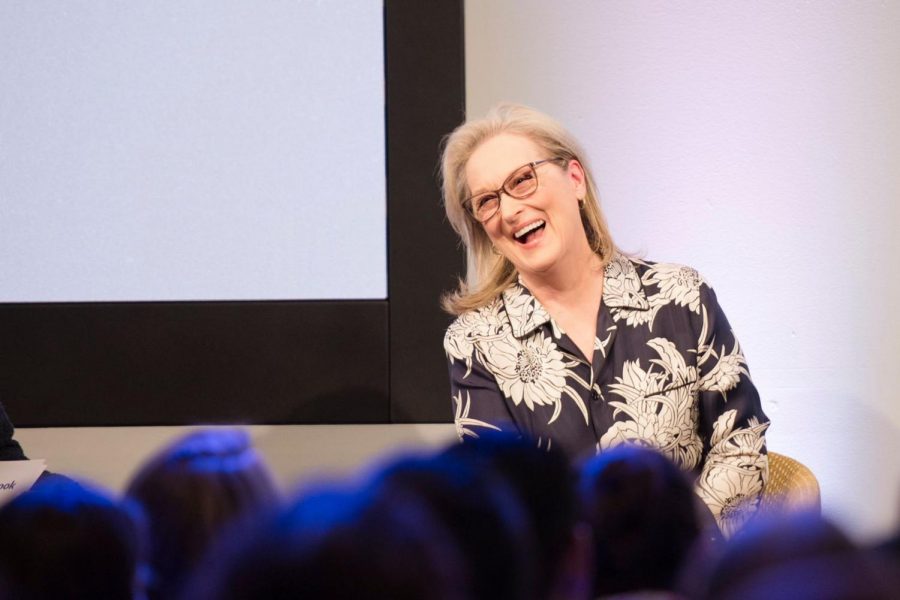If you’ve seen the recent Spielberg movie ‘The Post,’ you’ll know the plot centers mainly around Meryl Streep’s character Katharine “Kay” Graham. Graham was the owner and leader of “The Washington Post” throughout one of its arguably peak periods. The movie is set in the early 70s, beginning with the release of the Pentagon Papers and sparking a new age of investigative journalism. Graham is without a doubt an extremely powerful and influential leader, as she proves to be throughout the movie. However, she also asserts herself to be a feminist in her own right, though that may not be immediately obvious.
Graham at first glance may seem to be a bit of a traditionalist. She inherited the leadership role from her father and later her husband. Her leadership style toward the beginning of the movie is far more reserved. It was a bit infuriating as a spectator, to watch her sit back and listen to all of the men speak over her.
In one of the most memorable scenes, another board member is stumbling over his words and Graham writes something on her notepad, so that he knows what to say. The board member claims Graham’s idea as his own and when it is praised by the other executives, Graham does nothing to speak up and take credit for what was her original thought.
This was extremely frustrating to watch. After decades of women fighting to have their voices heard in the media, watching a woman character that is content with sitting back and tolerant of being walked over by men seems like a huge step backward. However, as the movie progresses, Graham becomes significantly more outspoken.
The film climaxes with the final decision to publish the “Pentagon Papers,” and the ultimate power to decide ends up lying with Graham. This call to publish is built up throughout the movie and is extremely influential, as it puts The Post in conflict with the Supreme Court and President Nixon. This decision proves Graham’s true leadership. In one of the pivotal lines of the film, Graham tells her employees that it is her paper and that the decision lies with her.
This scene proves with conviction that Graham is a feminist. The act of a woman shutting down a man who tries to challenge her position is a peak example of feminism. However, it is not just this singular moment that defines Graham as a feminist, but the little things that she does.
Feminism in the 1970s was obviously not as progressive as it is today. For this reason, Graham chooses to put the paper before herself. She chose not to make a scene every time she is stepped over or not listened to because of her gender. Graham carries herself with all the grace and elegance that was expected of a high-class woman, such as herself at the time, but still speaks up for what she believes in. Graham represents a demure type of feminism, which although sounds like an oxymoron, is every bit as important as the more typical type of feminism often coined “feminazi.”
Graham knows that she is just as deserving of respect as any of the other men in the company are, but she carefully picks her battles. She speaks up when it is truly important, but otherwise never addresses her gender because she doesn’t just want to be seen as a woman, but as a leader.
Given today’s political climate, it is important to keep in mind the importance of Graham’s version of feminism. This doesn’t mean to stop being angry about all the injustices women in this country face, because there still lies legitimate causes for reaction. Instead, with Graham’s approach in mind, we should speak up with grace and to remember that being a feminist means treating all genders equally and doing things not just as a woman, but as a person.
Annabelle Tocco is a Collegian columnist and can be reached at [email protected].



















![By freestocks.org [Creative Commons Zero], via Wikimedia Commons](https://dailycollegian.com/wp-content/uploads/2024/04/Picture1-1.png)
John aimo • Feb 28, 2018 at 4:47 am
And how many people do you think watched this film or care about feminist ‘values’? Not many
I recommend two other movies. One is I tonya, this is a great and entertaining film about Olympic ice skater Tonya Harding.
The other is Happy Death Day. This is a raunchy violent film about a college student who relives being murdered everyday. It’s sort of like groundhog day in hell.